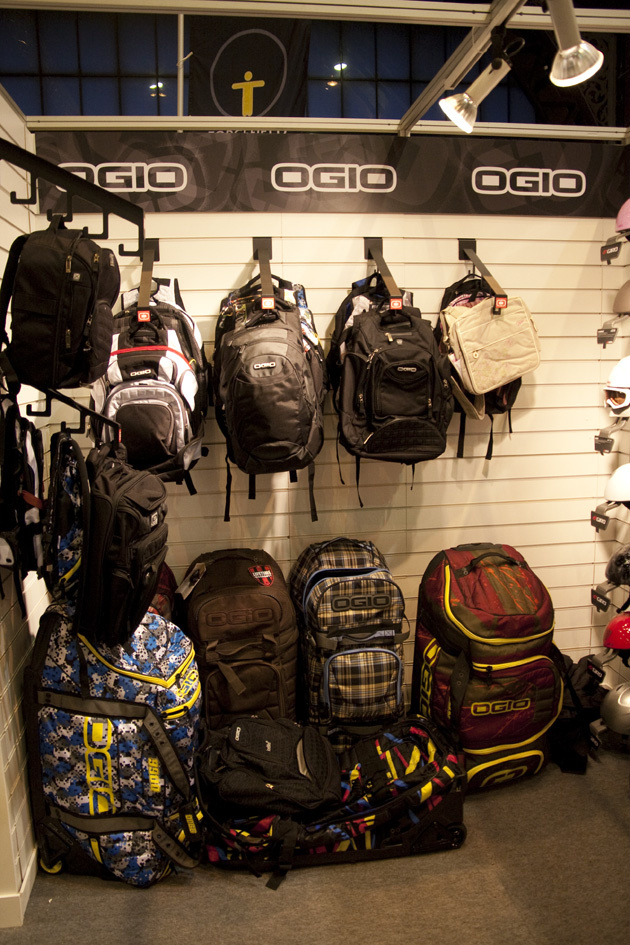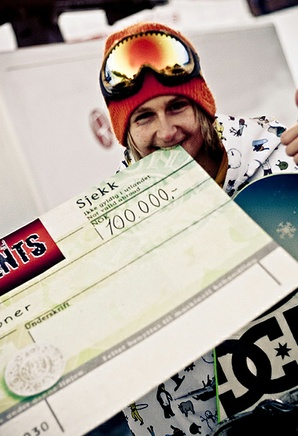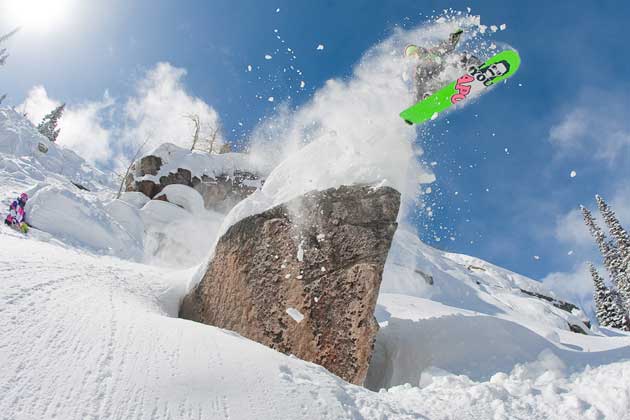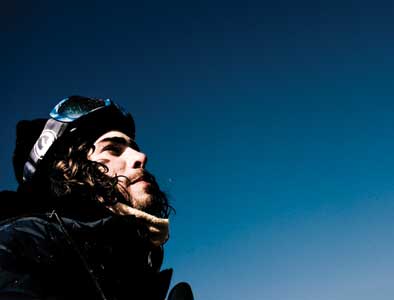Published in Whitelines Magazine Issue 88, January 2010
In this UK -focused column, Damian Doyle (British film maker and shaper extraordinaire) tackles a different local topic each month.
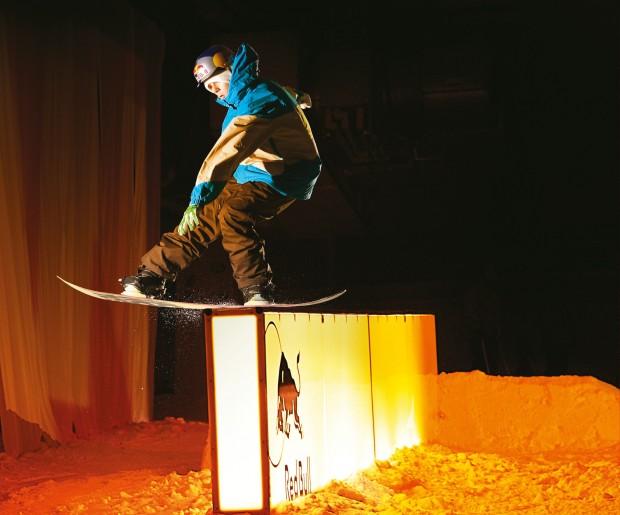
Recently, Danny Wheeler announced his retirement from professional snowboarding. With that decision, the UK lost one of the few snowboarders we could say had a proper pro career.
This got me thinking: What defines a ‘professional snowboarder’ and how many British riders can claim that title? To truly consider themselves ‘pro’, a snowboarder surely has to be getting paid a yearly wage by a brand purely for their snowboarding talent – not just travel expenses. Defining the term in this way gives quite shocking results. It basically excludes nearly all the people we consider to be pros in the UK. Out of the dozens of ‘hooked up’ riders from the UK, there’s less than a handful (Tyler Chorlton, Jenny Jones and Jamie Nicholls sprint to mind) who are earning a good living from snowboarding. So should all the other riders be classed as mere amateurs? Or maybe ‘sponsored riders…’ but that’s a bit confusing.
To make things simpler, I would argue that there are two types of pro snowboarders – the ‘career pro’ and the ‘lifestyle pro’. The ‘career pro’ earns a wage from the sport, is able to save money, has an expendable income and enjoys a good lifestyle at home, separate to snowboarding. Think Shaun White or Nicolas Müller. Most UK ‘pros’ are not in this position. They only survive without a regular job by changing their lifestyle to go snowboarding, so that day-to-day living and snowboarding expenses become the same thing. They use the small amount of travel budget and sponsorship money they receive to spend the year riding, and get shots in magazines and videos to keep their sponsors happy. In that sense, although you’re not really making any money, you could still say you are a professional snowboarder. I would call this lot ‘lifestyle pros’.
It’s obviously a big leap from lifestyle pro to career pro, and so far, very few UK riders have done it. Danny Wheeler set the path to follow, securing monetary contracts with his sponsors and having a pro-model graphic on both Duotone and Icon snowboards. Jenny Jones, meanwhile, is the most successful British pro to date – she can go to an event and win $10,000 in one weekend. But it’s Jamie Nicholls who is now setting the precedent for future riders in this country. He’s doing it in a proper business-like fashion, with the help of a manager, and in the past two years he has gone from being on equipment-based UK deals to earning a yearly wage from Quiksilver, Red Bull and Nike 6.0. Not bad for a 16-year-old from Halifax who was studying for his GCSE’s only months ago.
There are dozens of sponsored riders in the UK, but to make the leap up from lifestyle pro to career pro, it seems you need not only riding talent, but also the business sense. Scott McMorris, Gary Greenshields, Seb Kern, Ben Kilner, Dom Harington, Zoe Gillings, and Jack Shackleton are a few who could do it. But increasingly, even for this bunch, the level they have to reach to make snowboarding a proper career is getting higher.
Firstly, the standard of riding throughout the world is increasing, making it harder for British talent to stand out, and secondly, in the current economic climate, the amount of money brands have to give is limited. So, instead of being in a position to look for new contracts and more money, riders are hanging onto their existing sponsors and hoping they don’t get dropped. The days when the snowboard industry was booming and everyone was looking to sponsor a UK team are unfortunately gone.
These days, snowboarders have been forced to become more creative about how they package themselves. It’s no longer enough to just go out in the latest kit, ride around resort and shoot a couple of photos. Riders have to go searching for opportunities and work hard for their coverage: do comps, travel to different resorts, find ways to be noticed for your personality as well as your tricks. UK riders have been particularly good at adapting to this change in brand’s expectations. There’s something about our local scene that seems to encourage the development of broader talents. Prime examples are Ed Leigh, now a TV presenter, and Jon Weaver, who is now Forum’s European team manager.
If you’ve got the personality and ambition, there certainly seems to be scope for British lifestyle pros’ to come through snowboarding and find careers in the wider industry. The more worrying question is, how many of our riders can realistically take this path? We can’t all be TV presenters and team managers after all, and neither do we all want to be. But with sponsorship harder to come by and less financially rewarding than ever, how long can the UK’s top talent afford to keep riding?
Thanks to the TSA ’s Jeremy Sladen and Team GB coach Hamish McKnight for their input to this column. Some of the information in this column is based on speculation of rider’s wages. Sorry to any riders missed out.

Damian Doyle grew up shredding the carpets of Sheffield and Halifax, where his love of dryslope inspired him to make the grassroots film ‘StandingSideways’. Since then he has directed two further snowboard flicks (‘Hungerpain’ and ‘thisISBritain’) and flown the flag for UK freestyle parks through his job as head shaper for Castleford SNO!zone. Damo remains committed to the local scene, masterminding some of the most progressive and innovative events seen on these shores.

